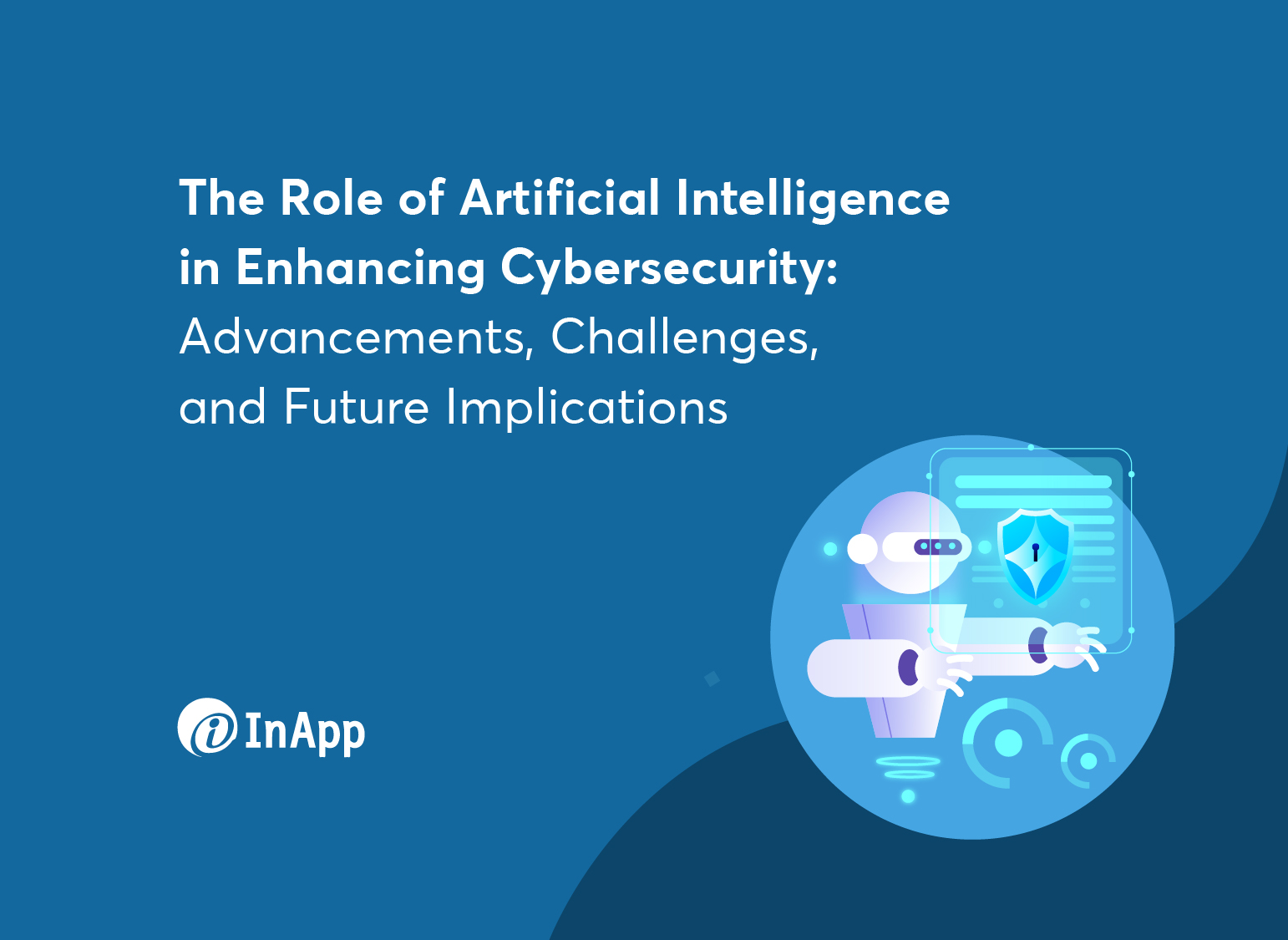As technology continues to advance at an unprecedented pace, so does the sophistication of cyberattacks. In today’s digital landscape, the role of artificial intelligence (AI) in cybersecurity has become increasingly vital. AI offers immense potential for enhancing cybersecurity capabilities and providing effective deterrents against malicious activities. With its ability to analyze vast amounts of data, detect patterns, and make real-time decisions, AI is transforming the way organizations protect their valuable information and defend against cyber threats.
Over the years, the field of cybersecurity has witnessed significant developments in the integration of AI. It has bolstered the effectiveness of security systems by facilitating real-time threat detection, identifying vulnerabilities, and providing proactive response mechanisms. In fact, a study conducted by Accenture revealed that AI could save businesses up to $2 trillion in cybersecurity costs by 2035. With the power to automate threat analysis, AI systems can detect anomalies and patterns that may go unnoticed by human analysts, thereby strengthening overall cybersecurity defenses. By harnessing AI technology, organizations can stay one step ahead of cybercriminals by quickly identifying and mitigating potential risks, ensuring a safer digital environment for users.


The Role of AI in Cybersecurity: Enhancing Capabilities and Deterrence
As technology continues to advance, so do the threats in the digital landscape. The rise of cybercrime and the constant evolution of hacking techniques have made cybersecurity more crucial than ever before. In this age of digitization, organizations must employ cutting-edge technologies to safeguard their systems and networks. One such technology that has emerged as a powerful tool in the fight against cyber threats is artificial intelligence (AI). The role of AI in cybersecurity has become increasingly important as it offers enhanced capabilities and facilitates deterrence against malicious actors.
AI has the potential to revolutionize the field of cybersecurity by automating various processes and improving the accuracy and efficiency of threat detection and response. By leveraging AI algorithms, cybersecurity systems can detect and prevent threats in real-time, minimizing the risk of data breaches, unauthorized access, and other cyber attacks. AI-powered systems can quickly analyze large volumes of data, identify patterns, and make predictions, enabling organizations to take proactive measures to safeguard their networks and data.
The intersection of AI and cybersecurity opens up new possibilities for defending against cyber threats. With the ability to learn and adapt, AI can continuously evolve its defenses to keep up with the evolving threat landscape. It can quickly identify new types of attacks and develop countermeasures to mitigate risks. Additionally, AI can provide valuable insights into existing vulnerabilities and recommend security enhancements, strengthening the overall cybersecurity infrastructure.
One of the key advantages of using AI in cybersecurity is its ability to enhance capabilities in threat detection and response. Traditional signature-based detection methods are often limited in their effectiveness as they rely on known patterns and signatures of attacks. This leaves room for zero-day attacks and other sophisticated techniques to go undetected. However, AI-powered systems can go beyond known patterns and identify anomalous behaviors, allowing for early detection of new and unknown threats. By analyzing network traffic, user behavior, and system logs, AI algorithms can identify deviations from normal patterns and raise alerts or automatically take corrective actions.
Enhancing Threat Intelligence
One of the primary benefits of AI in cybersecurity is its ability to enhance threat intelligence. Threat intelligence refers to the collection, analysis, and dissemination of information about potential cyber threats. AI-powered systems can automate the process of collecting and analyzing vast amounts of threat data from various sources, such as security feeds, vulnerability databases, and dark web monitoring. These systems use machine learning algorithms to identify relevant indicators of compromise (IOCs) and analyze patterns and trends to detect emerging threats.
With AI-driven threat intelligence, organizations can stay ahead of cyber threats by proactively identifying and mitigating potential risks. By leveraging AI algorithms, security teams can analyze threat data in real-time, identify patterns, and predict potential attack vectors. This enables organizations to take preventive measures and implement necessary security controls to strengthen their defense mechanisms. Furthermore, AI-powered threat intelligence platforms can provide automated threat reports and actionable insights, enabling organizations to make informed decisions and prioritize their security efforts.
In addition to threat detection, AI can also play a crucial role in incident response. In the event of a cyber attack, AI-powered systems can rapidly analyze and correlate various data sources to understand the scope and impact of the attack. This helps in identifying affected systems, analyzing the root cause, and formulating an effective response plan. AI algorithms can automate the triage and containment processes, allowing security teams to respond rapidly and mitigate the damage caused by the attack.
Overall, by enhancing threat intelligence, AI empowers organizations to proactively defend against cyber threats and respond effectively in the event of an attack. It reduces the time taken to detect and respond to incidents, thereby minimizing the potential impact on business operations and reputation.
Implementing Advanced Authentication Mechanisms
Authentication is a critical component of any cybersecurity strategy. It ensures that only authorized individuals can access sensitive systems and data. Traditional authentication mechanisms, such as passwords and two-factor authentication, have their limitations and can be vulnerable to various attack vectors. However, AI-powered authentication mechanisms offer more robust security and can mitigate the risks associated with traditional methods.
AI algorithms can analyze large sets of user data, such as typing patterns, mouse movements, and behavioral biometrics, to create unique user profiles. These profiles are then used to authenticate users based on their behavioral patterns rather than relying solely on static credentials. This approach, known as behavioral biometrics, can provide a higher level of security as it is more difficult for attackers to imitate these behavioral patterns.
Moreover, AI-powered authentication systems can continuously monitor and analyze user behavior to identify any anomalies or suspicious activities. If a user’s behavior deviates from their usual patterns, the system can raise an alert or trigger a multi-factor authentication process to validate the user’s identity. This helps in detecting and preventing unauthorized access attempts and protects against various identity-based attacks, such as credential stuffing and brute force attacks.
AI can also enhance the user experience by providing seamless and frictionless authentication methods. Traditional authentication mechanisms can be cumbersome for users, requiring them to remember and enter complex passwords or go through multiple verification steps. AI-powered authentication systems can intelligently adapt to user behavior and context, providing a smoother and more efficient authentication process. This improves user satisfaction and reduces the likelihood of users adopting insecure practices, such as reusing passwords or sharing credentials.
Securing IoT Devices
The proliferation of Internet of Things (IoT) devices has opened up new avenues for cyber attacks. These devices, ranging from smart home appliances to industrial sensors, often have limited computational power and security capabilities, making them attractive targets for hackers. AI can play a crucial role in securing IoT devices and protecting against IoT-based attacks.
AI algorithms can analyze the behavior of IoT devices and detect any anomalous activities that could indicate a compromise or unauthorized access. By monitoring network traffic and analyzing communication patterns, AI-powered systems can identify potential IoT-based attacks, such as command injection, device spoofing, or data exfiltration. This enables organizations to respond quickly and take necessary actions to mitigate the risks associated with vulnerable IoT devices.
Furthermore, AI can enhance the security of IoT ecosystems by implementing adaptive security measures. AI algorithms can continuously learn and adapt to new IoT device behaviors, allowing them to detect and prevent emerging threats. This helps in maintaining the integrity of the IoT ecosystem and safeguarding critical infrastructure and sensitive data.
Another area where AI can contribute to securing IoT devices is anomaly detection. AI algorithms can establish baseline behavior profiles for IoT devices and compare real-time behavior against these profiles. Any deviation from the baseline behavior can indicate a potential security breach or compromise. By leveraging AI for anomaly detection, organizations can quickly identify and respond to threats, reducing the window of opportunity for attackers.
Conclusion
The role of AI in cybersecurity is multifaceted and offers significant benefits in enhancing capabilities and deterrence against cyber threats. By leveraging AI algorithms, organizations can enhance their threat intelligence capabilities, implement advanced authentication mechanisms, and secure IoT devices. AI-powered systems bring automation, accuracy, and efficiency to various cybersecurity processes, reducing the time to detect and respond to threats. As the complexity and sophistication of cyber threats continue to evolve, AI will continue to play a crucial role in strengthening the defense mechanisms in the digital landscape.
Integrating AI into cybersecurity practices is essential for organizations to stay one step ahead of malicious actors and protect their valuable assets, data, and reputation. As technology continues to advance, AI will become an indispensable tool in the fight against cybercrime.
For more information on the role of AI in enhancing cybersecurity, please visit our website.
The Role of AI in Cybersecurity: Enhancing Capabilities and Deterrence
- AI technologies are being increasingly used in cybersecurity to enhance the capabilities of security systems.
- AI can analyze huge amounts of data to detect and prevent cyber threats in real time.
- AI can also help in identifying patterns and anomalies that humans may miss, improving the accuracy of threat detection.
- By automating certain tasks, AI can free up cybersecurity professionals to focus on more complex and strategic initiatives.
- The use of AI in cybersecurity can act as a deterrent to potential attackers, as it helps in strengthening overall defense mechanisms.

The use of AI can greatly enhance cybersecurity capabilities and deter potential cyber threats. With AI-powered systems, organizations can detect and respond to threats in real time, minimizing the damage caused by cyber attacks.
AI can analyze large amounts of data and identify patterns, helping security teams identify and address vulnerabilities more effectively. By automating certain tasks, AI can also reduce the time and effort required for cybersecurity operations, allowing security professionals to focus on more strategic and complex issues.
Furthermore, AI can assist in predicting and preventing future attacks by constantly learning and adapting to new threats. This proactive approach strengthens cybersecurity defenses and reduces the risk of successful breaches.
In summary, AI plays a critical role in enhancing cybersecurity capabilities by improving threat detection, response time, and overall efficiency. By leveraging AI technology, organizations can better protect their networks, systems, and sensitive data from increasingly sophisticated cyber threats.


